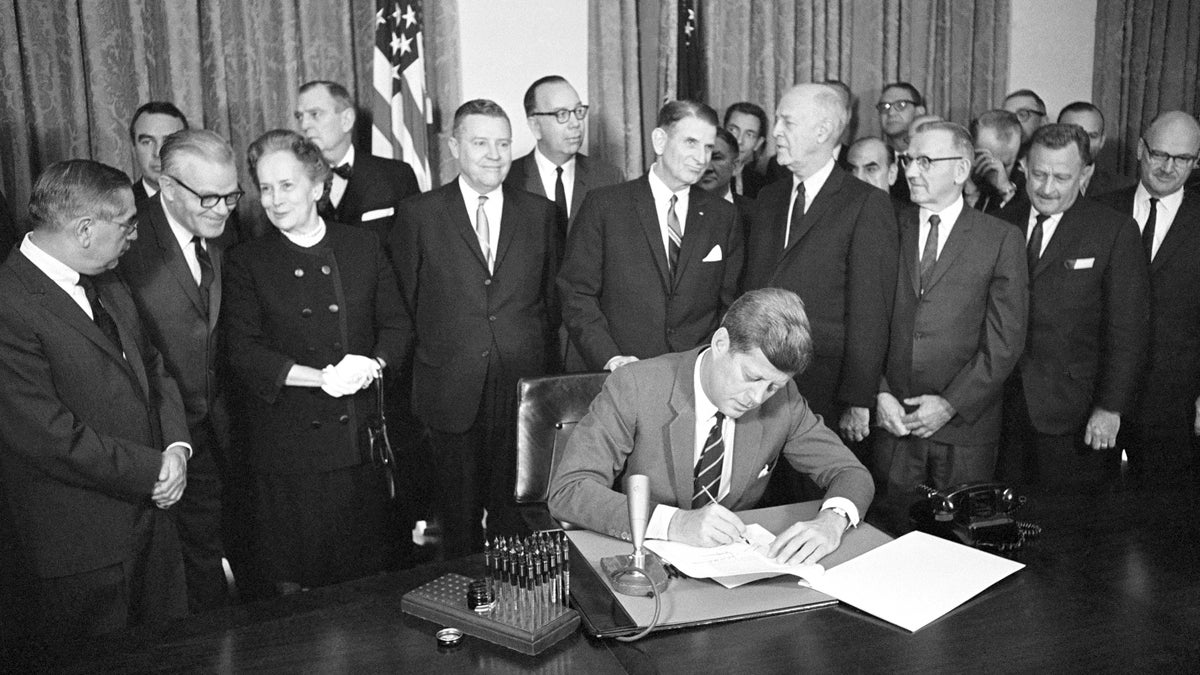1963 landmark legislation changed mental health care system, advocates say

FILE - In this Oct. 31, 1963 file photo, President John F. Kennedy signs a bill authorizing $329 million for mental health programs at the White House in Washington. The Community Mental Health Act, the last legislation that Kennedy signed, aimed to build 1,500 mental health centers so those with mental illnesses could be treated while living at home, rather than being kept in state institutions. (Bill Allen/AP Photo, File)
Fifty years ago this week, President John F. Kennedy signed the Community Mental Health Act into law. The legislation was aimed at providing different levels of mental health care in federally funded community centers, rather than institutions.
This landmark legislation drastically altered the delivery of mental health services in the country.
Advocates say the law laid the groundwork for a lot of positive changes, but its promise was never fully realized.
As a young man, Philadelphia mental health advocate Joseph Rogers was diagnosed with bipolar disorder and sent to a state hospital. The place was overcrowded, staff was overworked — and he wasn’t getting better. “There was not much in the way of treatment, not much in the way of programming, I just remember sitting in the day room all day, watching TV through plexiglass,” he recalled.
The Community Mental Health Act closed psychiatric hospitals such as the one Rogers describes — and advocates agree that this was a very important step. The act mandated the creation of community mental health centers that were supposed to take the place of hospitals, but only half the planned centers were ever built, none was fully funded, and the funding wasn’t available over the long term.
Still, the law did change people’s thinking on mental illness, said Yale School of Medicine psychologist Jacob Tebes. “Prior to that time, if somebody had a mental illness, it was their problem, or the family’s problem,” he said. “By having this act, it was saying ‘this is our community’s challenge.'”
Rogers, who works at the Mental Health Association of Southeastern Pennsylvania, agreed that the act laid the groundwork for making treatments available in communities. However, he said, access and funding remain a major challenge and not enough goes to prevention.
“We know that we can identify young people that are at risk, we don’t yet have the technology, so to speak, or the resources to really reach out to those people, and prevent them from becoming long-term mentally ill,” Rogers said.
WHYY is your source for fact-based, in-depth journalism and information. As a nonprofit organization, we rely on financial support from readers like you. Please give today.


